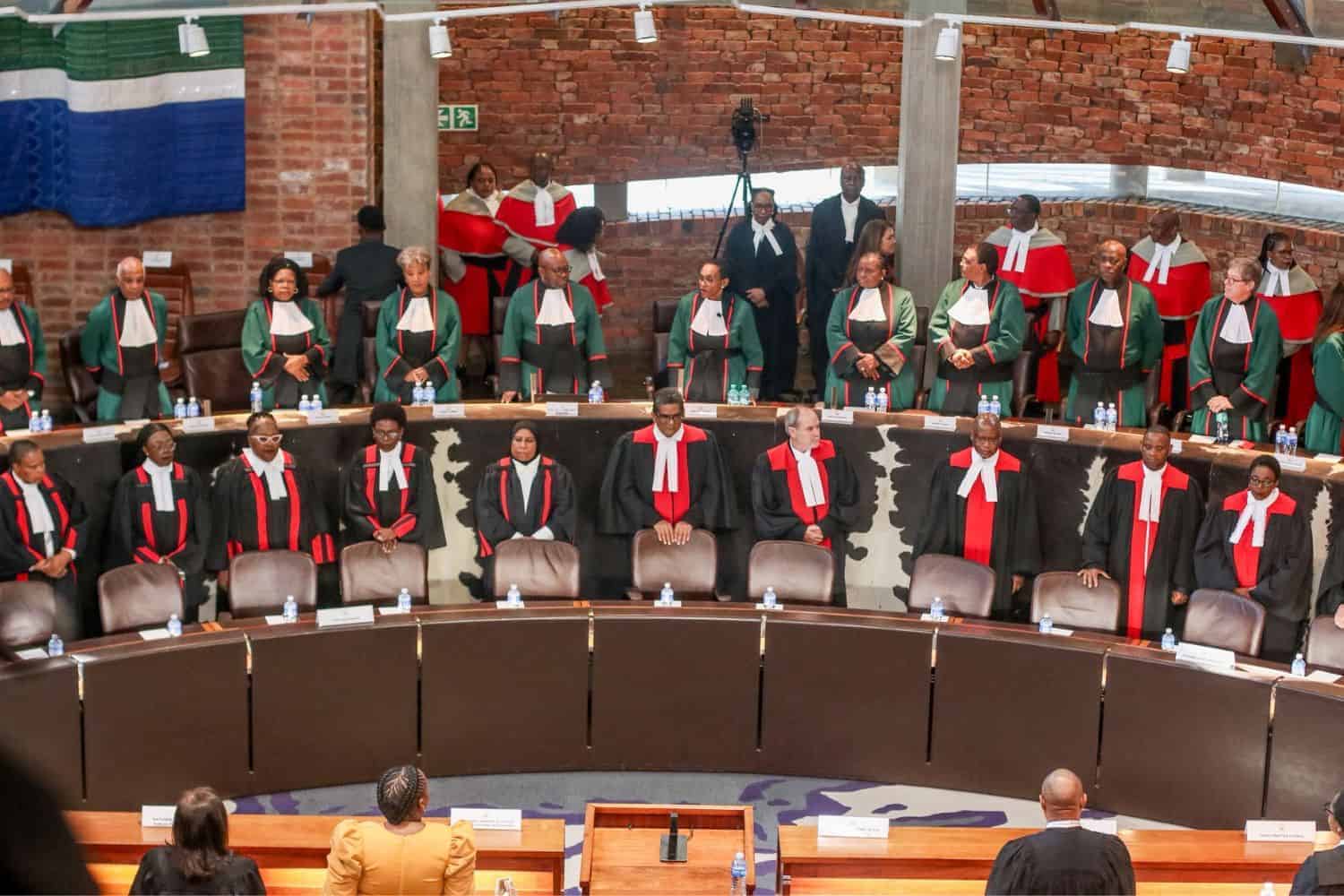The apex court heard arguments in a landmark case on Thursday.

The Constitutional Court (ConCourt) on Thursday heard that certain provisions of the sexual offences law make it difficult to secure convictions in rape cases.
Non-profit company The Embrace Project and the Centre for Applied Legal Studies (CALS) are seeking a confirmatory order to declare sections of the Criminal Law (Sexual Offences and Related Matters) Amendment Act unconstitutional and invalid.
They argue the law is flawed because an accused person charged with rape can avoid conviction by showing it was reasonably possible that they believed the complainant or victim had consented.
High Court’s judgment on consent in Sexual Offences Act
The ConCourt application follows a judgment by the High Court in Pretoria on 30 September 2024.
The high court declared sections 3 to 9 and 11A, together with section 1(2) defining consent as a “voluntary or uncoerced agreement”, unconstitutional.
Essentially, the court ruled that it is not valid for an accused to rely on “I thought they consented” as a defence during trial.
While the court suspended the declaration of invalidity for 18 months to allow Parliament to correct the defects, it also dismissed CALS’s request to replace the word “consent” in the Act with “coercion”.
ALSO READ: Life sentence for traditional healer who raped minors during fake cleansing
This ruling is now being appealed in the ConCourt.
The entire case stems from the 2018 acquittal of a man charged with allegedly raping a student.
The accused argued that he mistakenly believed consent had been given, even though the complainant — the second applicant in the ConCourt case — had said no.
The Pretoria Regional Court at the time found that the victim did not physically resist or protest loudly, thus, the accused could have believed consent was present.
ConCourt proceedings
During Thursday’s proceedings, advocate Nasreen Rajab-Budlender, representing The Embrace Project and the second applicant, reminded the ConCourt that the case was about the realities of sexual violence.
“This case at its core is about how the law treats victims, survivors of sexual violence and whether, as it presently stands, it does enough to protect them in terms of their constitutionally enshrined rights; and if not, how best we are to cure and correct that constitutionality,” she said.
Although she focused heavily on rape cases, Rajab-Budlender argued that all other sexual offences should be dealt with similarly.
She explained that these offences also involve intention and consent, and can be just as “degrading and humiliating” for victims.
READ MORE: European court finds fault with France’s sexual consent rules
Therefore, Rajab-Budlender argued, such crimes violate victims’ constitutional rights to dignity, privacy, and bodily integrity.
“Many victims, many survivors of sexual violence, do not fight or flee, but they freeze. That is a recognised reaction.
“While the court can no longer infer consent from their silence or the passivity, the accused can because of the way in which these provisions are drafted and the Act compels the court to treat this as a valid defence,” the lawyer said.
Watch the case below:
Sexual Offences Act makes convictions hard, risks acquitting perpetrators
Rajab-Budlender highlighted that the Act currently makes it difficult for courts to prove sexual offence cases, allowing accused persons to walk free.
“Most perversely, the less progressive a man’s views are, and I refer to men because it is true that most of the perpetrators of these offences are men, about consent, the more likely he is to be acquitted under the statute as it stands,” she told the ConCourt.
READ MORE: Withdrawn GBV cases allow ‘perpetrators to evade justice’, hears portfolio committee
“Because what the magistrate who’s looking at these cases has to consider is what was subjectively in the mind of the perpetrator.
“What did he believe? Did he believe that the woman he was about to have sex with consented?
“And in the context of a society which is perpetuated with rape myths, for example, that we’ve been through, it is very hard for the state to prove otherwise,” Rajab-Budlender added.
Courts must assess steps taken to determine consent
Rajab-Budlender further argued that in instances where an accused raises the issue of consent, the court must evaluate whether the individual took any steps to determine it.
“A court would then have to evaluate whether he took steps at all and whether they were reasonable. The state would have to prove where consent was raised, and it’s important that we understand that this only happens in the world where an accused pleads a defence of consent.
“In that situation, the state then has to prove that, objectively, all of those objective facts show that, subjectively, he knew she didn’t consent.
READ MORE: Male victims should not be ignored, says GBV activist
“I suppose the logical answer is it’s taking it away from a subjective intention and closer to an objective analysis, which then gets us closer to negligence.”
She conceded that false accusations do exist, but contended that statistics on gender-based violence crimes show they are “few and far between”.
“It is incumbent on our laws to balance the rights and interests of both parties and we submit that currently it’s not balanced.”
CALS appeal
Advocate Letlhogonolo “MX” Mokgoroane, representing CALS, argued that including consent in the legal definition of sexual offences infringes on the right to equality and places an unequal burden on victims.
“Victims are often required to prove their resistance or lack of consent, subjecting them to invasive questioning and scrutiny.
“This process not only re-traumatises victims, but also reinforces the societal narratives that women are partially responsible for the crimes committed against them,” he told the court.
Mokgoroane said victims often experience sexual violence as a frightening, life-threatening attack rather than as a sexual act.
READ MORE: Lesotho national gets two life terms for lover’s rape
Retaining consent in the law, he argued, fails to recognise sexual offences as acts of violence and domination.
“Effectively, what consent does seeks to impugn a force-based reasoning because in order for a victim to say they lacked consent, they must have done something outrageous outwardly so that the accused is able to know what happened.”
They added that removing consent would not change the need for the state to prove that the conduct was intentional and unlawful, but would align sexual offences with other serious, violent crimes.
“The high court did not deal meaningfully with the evidence that we submitted.”
Mokgoroane also highlighted that the Act already defines consent as “voluntary or uncoerced agreement”, so reading in coercive circumstances would be consistent with the legislation rather than an overreach.






